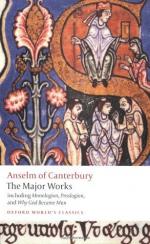|
This section contains 6,840 words (approx. 23 pages at 300 words per page) |

|
SOURCE: Craig, William L. “St. Anselm on Divine Foreknowledge and Future Contingency.” Laval théologique et philosophique 42, no. 1 (February 1986): 93-104.
In the following essay, Craig assesses Anselm's arguments against theological fatalism and his ideas regarding free will.
Contemporary discussions of foreknowledge and future contingency have all but completely overlooked the contributions of Anselm of Canterbury on this score, despite that fact that his treatise. De concordia praescientiae praedestinationis et gratiae Dei cum libero arbitrio (1107/08) contains a very interesting and illuminating discussion of the problem of theological fatalism. That work is divided into three sections, dealing respectively with the harmony of foreknowledge, of predestination, and of grace with human freedom of the will. In the first section, which will be the focus of our interest, Anselm draws upon the analyses of both Augustine and Boethius to present a multi-faceted solution to the alleged incompatibility of God's foreknowledge and man's...
|
This section contains 6,840 words (approx. 23 pages at 300 words per page) |

|


